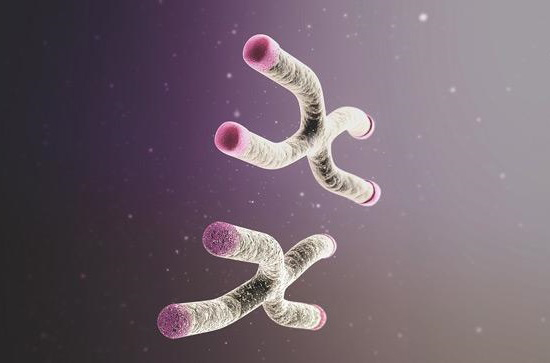Scientists have identified a new cancer risk associated with chromosomes, according to a 22-year-long study from the University of Pittsburgh Cancer Institute.
Jian-Min Yuan — a professor in Pitt’s School of Public Health, a physician and researcher — conducted research indicating that the length of telomeres — the protective caps found on the end of genetic material, called chromosomes — might be related to cancer risk.
Chromosomes are a thread-like structure made up of DNA and proteins. During cell division, the ends of chromosomes are damaged. Telomeres are made up of unimportant genetic material, so that when chromosome ends are damaged, it is the telomeres that suffer, rather than DNA that is necessary for survival.
According to Yuan’s research, which he presented at the annual meeting of the American Association for Cancer Research April 3, longer telomeres could indicate that an individual is at higher risk for developing cancer.
“If the cell has a longer telomere length it has a tendency to survive more. With each division [of chromosomes] you can have more errors. This could be a part of the reason,” Yuan said.
The implication of this, Yuan said, is that, individuals with exceptionally long telomeres will be able to take preventative measures against the risk of cancer. If an individual knows that they have long telomeres, then they can get more regular cancer screenings and start treating cancer earlier.
Patricia Opresko, a faculty member in the environmental and occupational health department at Pitt and a researcher at Hillman Cancer Center, said telomere length primarily depends on genetics, but environmental factors can also alter the length.
“Some human population studies indicate that exposures to environmental factors — including air pollution, cigarette smoke and pesticides — are associated with telomere shortening, whereas exposure to arsenic is associated with longer telomeres” Opresko said.
The study, conducted by Yuan and a team of five other scientists, began in 1993. The team examined blood samples collected from more than 28,000 people enrolled in the Singapore Chinese Health Study, and then followed the electronic health records of participants for 22 years.
At the conclusion of the study in 2015, 4,060 of the 28,000 study participants had developed cancer. Yuan and his team used this information to determine a relationship between cancer and telomere length. Blood samples revealed that the one-fifth of participants with the longest telomeres had a 33 percent higher chance of developing cancer, after accounting for age, health and lifestyle factors.
According to Bennett Van Houten — Richard M. Cyert professor of molecular oncology in the department of pharmacology and chemical biology and associate director for basic research at the UPMC Aging Institute — Yuan’s study is groundbreaking, but he also said it is important to see the study’s limits.
Van Houten, who also works as the co-leader in the program of molecular and cellular cancer biology at the Cancer Institute, said there are too many variables in cancer to simply say that telomeres and cancer have a causal relationship. He said sometimes telomere studies miss part of the picture because they don’t look at telomere lengths in tissues.
“All the work that’s being done is on personal blood, and very little work is being done on the tissue and [tissue studies] are important,” Van Houten said. “Telomeres can vary in different cells, in different [tissues].”
According to Yuan, the issue of telomere length has to be approached carefully, since telomere shortening is known to be a significant cause of aging.
Researchers at institutions including Duke and Stanford universities are conducting studies about telomere-lengthening in an effort to slow down the aging process. Yuan warns against this kind of research, since telomere shortening has produced negative effects, and the effects of telomere lengthening are not known.
“The mentality should be, ‘We need to have optimal length of telomeres — we can’t have too short because of increased aging, and we can’t have too long because of increased cancer rate,’” Yuan said.
Although his research indicates that shorter telomeres might reduce the risk of cancer, Yuan said, for now, lifestyle factors should be prioritized over genetic modifications.
“All we can really do is live a healthy life for now, and maybe one day genomic-based medicine will give us a different solution,” he said.



